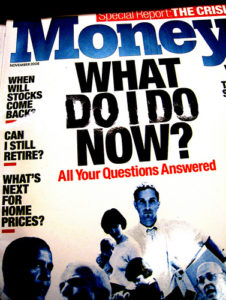Do I have to pay my bills during a Chapter 7 or Chapter 13 bankruptcy?
- Posted by Dan
- On
- 0 Comments
- "Chapter 13", bankruptcy, bills, Chapter 7, knoxville bankruptcy, re-payment plan
If you are filing bankruptcy you are probably already excited about not paying your credit cards, old medical bills and other debts that have just overtaken your life. If you’ve struggled to just keep your head above water, you’re in for a treat as you get immediate relief from paying your debts.
However, I’m often asked this question, “Do I have to pay my bills now that I’ve filed my bankruptcy?
First, remember that there are basically three types of bills:
- Secured Debt
- Unsecured Debt
- Ongoing Living Expenses
Let’s address the last category first: Ongoing Living Expenses. These are bills that you need each month. Examples of these type debts are utilities, cable, water, phone, and internet. Perhaps you are incurring expenses for natural gas expenses, gas or diesel for your card, food bills at the grocer. All of these type expenses are simply that: expenses. They are not debts and you absolutely need to pay them. If you don’t pay the phone bill, be assured your service will get terminated. If you don’t pay the bill in the check out line at Kroger’s, . . . well, you get the picture.
Think of these as just necessities that are not going to be impacted by your bankruptcy. Now that you are getting a fresh start, perhaps this is a good time to look at these living expenses. Are there areas you can reduce or completed erase? High monthly expenses are a silent killer on your way to financial freedom.
Next, there’s Secured Debt. These are debts in with you have granted the creditor a lien. The two most common are your house and your car. Sometimes you may have also given a lien to KUB (or other utility provider) in order to secure installation of a new heat pump/air conditioner.
These creditors have to be dealt with very carefully. If you plan on keeping the property on which you granted a lien, you will likely want to pay the payments as they become due. If you don’t make the payments, it will be more difficult for your bankruptcy lawyer to negotiate a reaffirmation agreement. (A “reaffirmation agreement” is an agreement negotiated inside the case where you and the creditor agree to treat this debt as if you did not file bankruptcy.) A reaffirmation agreement, coupled with the payments being made, permits you to keep the collateral, such as your car or your home. If you are not sure about this one, be sure to talk with your bankruptcy attorney.
Finally, we must look at the Unsecured Debt. Unsecured debt is money owed where you have not granted a lien. Most credit cards are unsecured, as are most medical bills. The creditor has essentially agreed to look just to your personal credit to insure payment of the debt. There are very few circumstances in which you will pay these debts. A major purpose of the Chapter 7 is to free yourself from this unsecured debt. Never make any payments on this debt without talking first with your bankruptcy lawyer.
Chapter 13 Yields a different result for Secured and Unsecured Debt. Remember that in a Chapter 13 you are going to be making periodic payments for a minimum of 3 years up to 5 years. Those payments will be disbursed by the Chapter 13 Trustee to your creditors in accordance with your re-payment plan. Therefore the only creditors you will pay if you are filing a Chapter 13 case is the category of “Ongoing Living Expenses” All of the other creditors, to the extent that they will be paid at all, will be paid through your Chapter 13 re-payment plan.
Contact Knoxville – Sevierville Bankruptcy Attorneys
If you are considering bankruptcy, trust the experienced attorneys at Scott Law Group, PC. We’ve been filing consumer bankruptcy cases since 1983. We offer a free consultation to discuss your situation and to help you explore your options. If you are considering bankruptcy call us TODAY at 865-246-1050.
Photo Credit: Flickr: MyEyesSee


0 Comments